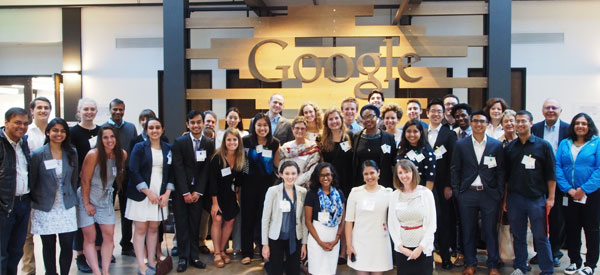
|
Stanford’s Center for African Studies Promotes Course on TeachAids
"If I had an hour to solve a problem, I would spend the first 55 minutes determining the proper question to ask, for once I know the proper question, I could solve the problem in less than five minutes." - Albert Einstein
As the major case study in Dr. Piya Sorcar’s Stanford University course entitled Designing Research-based Interventions to Solve Global Health Problems, TeachAids is currently featured on the Stanford University Centre for African Studies (CAS) Website. Along with the Haas Center, The Tech Museum, and several other organizations, CAS is a generous supporter of the class, and TeachAids is honored to partner with this important institution to develop and deliver an annual course that offers students insight into the strategies behind some of the most successful social ventures in the world.
Based on the premise that students have the passion and skills needed to make meaningful contributions to the fields of social entrepreneurship and global health, but sometimes lack the tools to apply their skills, a key theme of the course is learning to ask the right questions. Consistent with Einstein’s lauded approach of thoroughly understanding the problem before developing a solution, students are supported to reflect on community needs, cultural contexts, evidence based design and continuous evaluation. “No single size fits all when it comes to health solutions… Dr. Sorcar taught me to look beyond the technical specs and focus on the needs of the people we serve,” noted a 2016 class member with a background in Electrical Engineering.
The course, now in it’s fourth year, has more than 150 alumni. Class participants have included undergraduate and graduate students from backgrounds as diverse as engineering, human biology, business and international relations – all with a formidable drive to change the world and a passion for social entrepreneurship. A 2015 education graduate student alumni neatly summed the alignment between the aims of the course and the goals of its students, lauding Dr. Sorcar’s success in “tapping into and advancing the idealism of Stanford students to address persistent problems in health and education across the globe”.
The course culminates in a group project in which students evaluate a social venture that has won Silicon Valley’s prestigious Tech Award, The Tech Museum’s signature program that honors laureates who have found ways to utilize technologies benefiting humanity. The findings of these projects are presented to an evaluated by a panel of multidisciplinary experts, including representatives of major technology organizations, the Stanford Medical School, philanthropic organizations and international NGOs. A 2016 class participant majoring Human Biology recounted being “pushed to challenge ‘easy’ ways of categorizing the world, and instead embrace how messy, complicated, and tangled the world is –and then find a way to make my own sense of it,”, observing that the class reflects the real world in that success is possible only through hard work, determination and thoroughly understanding problems before identifying a solution.
TeachAids joins CAS in congratulating the 2016 class of Designing Research-based Interventions to Solve Global Health Problems. You brought with you the passion, ideas and creativity needed to change the world for the better. We hope you left with the skills and tools you need to make these dreams a reality. As you embark on the next steps of your journey, we hope you will join us in drawing inspiration from Albert Einstein: only through asking the right questions can you find the right solution.
Photo: The 2016 class of Designing Research-based Interventions to Solve Global Health Problems delivered their final presentations Google's Mountain View campus